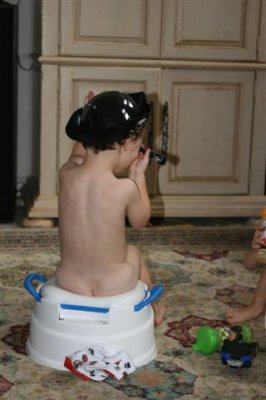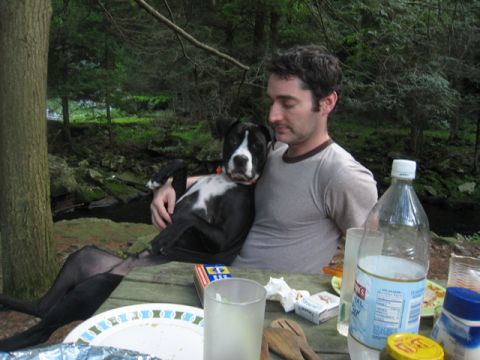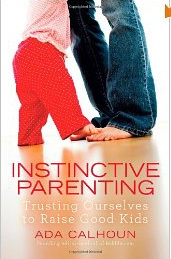 GLEE is back! And so are my big gay Glee-caps at Vanity Fair. This week, I cover off on the first of what the cast is calling “the back nine” the final nine episodes of Season 1. My love for the show remains strong, but I definitely have some issues. (Surprise!)
GLEE is back! And so are my big gay Glee-caps at Vanity Fair. This week, I cover off on the first of what the cast is calling “the back nine” the final nine episodes of Season 1. My love for the show remains strong, but I definitely have some issues. (Surprise!)
Kevin McHale: Not Gay, but Rapping
 I had a lovely phone chat this afternoon with Kevin McHale, who plays “Artie” (aka The Kid in the Wheelchair) on Glee. We discussed his recent mind-bending experiences with the three Os–Oprah, the Obamas, and Apolo Ohno–as well as his secret boy-band past. He also revealed that he will be rapping in the upcoming season of Glee, and is embarrassed about it. Also, he is planning an insurrection at the cast’s upcoming Radio City Music Hall show.
I had a lovely phone chat this afternoon with Kevin McHale, who plays “Artie” (aka The Kid in the Wheelchair) on Glee. We discussed his recent mind-bending experiences with the three Os–Oprah, the Obamas, and Apolo Ohno–as well as his secret boy-band past. He also revealed that he will be rapping in the upcoming season of Glee, and is embarrassed about it. Also, he is planning an insurrection at the cast’s upcoming Radio City Music Hall show.
Sit On It
 Cleaning the bathroom floor got you blue (or yellow?) Tired of teaching your toddler how to position his penis? Wondering why it is that men and women are so infuriatingly different? Well read the Gay Uncle’s timely tips (pun intended) on Why You Should Let Your Son Pee Sitting Down, and you’ll understand everything…and more.
Cleaning the bathroom floor got you blue (or yellow?) Tired of teaching your toddler how to position his penis? Wondering why it is that men and women are so infuriatingly different? Well read the Gay Uncle’s timely tips (pun intended) on Why You Should Let Your Son Pee Sitting Down, and you’ll understand everything…and more.
Click here, and be elucidated.
Gay Pets for Gay People
 The New York Times published a lengthy (make that very lengthy) article in their Sunday Magazine this week that posed the question, Can Animals Be Gay? In his role as Vanity Fair’s resident online homosexual, The Gay Uncle tackles this question from a variety of directions, incorporating disparate elements like leash laws, feminist theory, dolphin blowholes, and Muppets. In the end, he comes up with an answer of his own.
The New York Times published a lengthy (make that very lengthy) article in their Sunday Magazine this week that posed the question, Can Animals Be Gay? In his role as Vanity Fair’s resident online homosexual, The Gay Uncle tackles this question from a variety of directions, incorporating disparate elements like leash laws, feminist theory, dolphin blowholes, and Muppets. In the end, he comes up with an answer of his own.
11 Year Old Explains Justin Bieber
My 11 year-old niece, Hannah, explains the saccharine phenomenon that is Justin Bieber, in Vanity Fair.
Click here to be elucidated about his hair, his favorite color, and just where the fuck he came from.
The Most Important Car at the New York Auto Show
 It’s a Hyundai. (Yes, Hyundai.) Not the 80s shit-heap pictured here, but a brand new one from the brand to contend with. Read my latest online column in Vanity Fair and discover how I learned to upchuck my Hyundaitorade.
It’s a Hyundai. (Yes, Hyundai.) Not the 80s shit-heap pictured here, but a brand new one from the brand to contend with. Read my latest online column in Vanity Fair and discover how I learned to upchuck my Hyundaitorade.
Simply click here, and be enlightened.
10 More “Secretly” Gay Celebrities

While we’re still recovering from the shock of Ricky Martin’s stunning revelation, here’s my Vanity Fair.com slideshow of ten more famous folks whose covert homosexuality is equally “surprising.”
A Flight of Whines
 Every so often, some rising celebrity in the Parenting Advice world rings up the Gay Uncle and asks him to help them out with an expert opinion on a tangly topic. Since he abhors publicity, he usually says no. But every so often, the request is just too delicious to pass up. That was the case this past week when Vivian Manning-Schaffel (aka The Mad Mom) requested his assistance on the subject of defeating the demand rants of her two kids (whom she felt were “ganging up on her.”) What was Gunc’s advice? Read all about it here in her piece How NOT To Speak Whine.
Every so often, some rising celebrity in the Parenting Advice world rings up the Gay Uncle and asks him to help them out with an expert opinion on a tangly topic. Since he abhors publicity, he usually says no. But every so often, the request is just too delicious to pass up. That was the case this past week when Vivian Manning-Schaffel (aka The Mad Mom) requested his assistance on the subject of defeating the demand rants of her two kids (whom she felt were “ganging up on her.”) What was Gunc’s advice? Read all about it here in her piece How NOT To Speak Whine.
Is Genital Mutilation Instinctive?
 The Gay Uncle answers this and other pressing questions–on diverse subjects like Tim Gunn, Hockey, Cardboard Boxes, and Fiber Blasts–in his fascinating and fast-paced MOMLOGIC interview with his pal (and former Editor-in-Chief of Babble) Ada Calhoun when he calls her from a Chicago airport hotel and asks her to tell him about her new book “Instinctive Parenting: Trusting Ourselves to Raise Good Kids”. Don’t believe these things could all fit in one very short conversation? Then you haven’t talked to Ada. Read it and believe it!
The Gay Uncle answers this and other pressing questions–on diverse subjects like Tim Gunn, Hockey, Cardboard Boxes, and Fiber Blasts–in his fascinating and fast-paced MOMLOGIC interview with his pal (and former Editor-in-Chief of Babble) Ada Calhoun when he calls her from a Chicago airport hotel and asks her to tell him about her new book “Instinctive Parenting: Trusting Ourselves to Raise Good Kids”. Don’t believe these things could all fit in one very short conversation? Then you haven’t talked to Ada. Read it and believe it!
BONUS: Win a copy of Ada’s book. Just leave a comment that describes how you succeeded as a parent when you went with your gut. Best story wins.
From the Department of Cain and Abel
 The Gay Uncle received a note from a desperate reader the other day.
The Gay Uncle received a note from a desperate reader the other day.
I have three year old twin sons. The eldest (by eight minutes! Can’t forget that!) James, will sit in my lap off and on all day. His brother Simon, is not that much of a cuddler. Now here is my problem. James gets very jealous when he sees me holding Simon and will literally climb on top of me to edge Simon out of my lap. I have tried telling him to wait his turn, and that I am Simon’s mommy too, but he will refuse to give up. I have been patiently trying to change this reaction for almost a year with no luck. Is there anything else I can do?
Of course, he responded promptly!
First, it’s important to note that sibling rivalry is normal, even more so with twins who are going through many of the same issues at around the same time. Like with most areas of conflict with kids, the best solution is to try NOT to place yourself in the middle of the conflict. If you struggle back, the situation will usually escalate. So do your best to give James a single, straightforward, positivist, concrete instruction–“Simon’s on my lap right now, you can have a turn in TWO MINUTES if you wait patiently–and then ignore James when he continues his efforts, and be sure to follow through on 1) the timing and 2) the repercussions (not giving him some time in your lap) if he doesn’t abide.
Another option is what I like to call the Co-option Option. If James wants up in your lap when Simon is up there, have them both. Your lap is probably big enough. Suddenly, the struggle is taken out of the situation.
The third tactic is one that requires a bit more planning in its execution, but is important for any family with more than one kid. Give each of the kids some individuated attention on their own without their sibling. Take just James or just Simon to the park or a movie or a walk around the block or out for ice cream (you can return the favor with the other kid the following day or week, with a similar or different activity.) Of course, like with anything with young kids, let them know in advance of your plans, and how and when they’ll be included in this munificence in the near future as well (calendars are great for this, as they make the future–and abstract concept–concrete for young kids.) Explain that it’s important for everyone to get some special one-on-one time. Sometimes this is what kids are craving when they’re attempting to exert control over a sibling.
Finally, be aware of what else is going on in the kids’ lives when these issues come up. Things like toilet training or a move or starting school or a pregnancy can cause kids to become a bit more needy affection-wise. Tailor your responses accordingly.